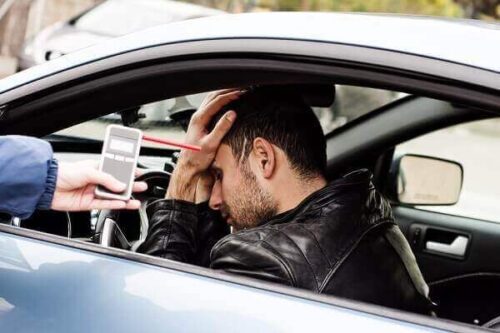
Law enforcement officers often use field sobriety tests to support their decision to arrest someone for driving under the influence of drugs or alcohol. Common field sobriety tests include the following:
- Walk-and-turn test,
- One-leg stand test,
- Horizontal gaze nystagmus (HGN) test, and
- Vertical gaze nystagmus (VGN) test.
Field sobriety test “results” are typically the officer’s opinion about whether the driver performed badly enough to indicate they are impaired.
There’s no guarantee that field sobriety tests accurately assess impairment—even though most officers would claim that they do. Officers can make mistakes in their administration and evaluation of sobriety tests.
If you have questions about field sobriety tests, contact a DUI lawyer in Omaha, Nebraska, at Petersen Criminal Defense Law today.
What Are Field Sobriety Tests?
The National Highway Traffic Safety Association (NHTSA) developed field sobriety tests to help officers spot indicators of impairment. The NHTSA acknowledges that the tests are not entirely accurate at measuring intoxication.
In fact, the NHTSA reports that the HGN test is about 77% reliable, the one-leg-stand test is about 65% reliable, and the walk-and-turn test is about 68% reliable.
A critical issue with field sobriety tests is the amount of discretion given to the officer when deciding whether an arrest will be made. Prejudice and bias can influence the officer’s decision more than the conduct of the individual completing the field sobriety test.
These issues cause inaccurate assumptions that can lead to someone’s wrongful arrest. If an officer asks you to complete roadside sobriety tests, you should politely decline the request.
Common Types of Sobriety Tests
Field sobriety tests involve a variety of mental and physical tasks designed to alert police officers to signs of intoxication. We’ve already gone over the common tests routinely used, but let’s dig in a little deeper as to what is involved.
Nystagmus tests evaluate the involuntary movement of your pupils. The walk-and-turn test and one-leg stand test evaluate your balance, coordination, and your ability to follow directions. These are skills that typically deteriorate if you are intoxicated.
But as stated above, field sobriety tests are not entirely accurate. In some cases, an officer’s bias and preconceived opinions about your intoxication outweigh your actual test performance. Therefore, doing field sobriety tests for an officer is always a risk.
Are Field Sobriety Tests Mandatory?
No one enjoys refusing a request from law enforcement. However, you should refuse to participate in field sobriety tests if an officer asks you to do so.
Declining to complete field sobriety tests is not against the law, nor is it sufficient grounds for an arrest. However, the district attorney can present evidence of your refusal to complete the tests if your case proceeds to trial.
Nebraska’s implied consent law requires drivers suspected of impaired driving to provide a preliminary breath sample at the scene and a chemical test of their blood, breath, or urine.
If you refuse those tests, you can face additional charges for the refusal and lose your driver’s license. The criminal penalties for a first refusal include the following:
- Between seven and 60 days in jail,
- A $500 fine, and
- Six months of license revocation.
The officer needs reasonable suspicion of DUI to request a portable breath test (PBT) or chemical test.
Hiring a DUI defense attorney to explain your rights and defend against criminal charges is the best way to reduce or avoid potential criminal penalties.
Contact an attorney at Petersen Criminal Defense Law today to schedule an appointment to discuss your case.
Do You Have Questions About Common Field Sobriety Tests? Contact a Lawyer at Petersen Criminal Defense Law Today
Many people try to avoid hiring a lawyer to minimize costs. However, a criminal conviction can cost you more in the long run. An experienced DUI defense lawyer can help you with the following:
- Compile facts and evidence to help support your defense;
- Determine the best methods available to challenge your DUI charges, whether it is through a plea, a motion to suppress, taking the case to trial, or a combination thereof;
- Negotiate plea deals; and
- Prepare for and take your case to trial when necessary.
Attorney Tom Petersen has the knowledge, resources, and experience necessary to represent you against allegations of driving under the influence.
Since its founding in 1995, Petersen Criminal Defense Law has helped thousands of clients navigate their criminal charges. Contact Petersen Criminal Defense Law today for a free case evaluation and see what we can do for you.


